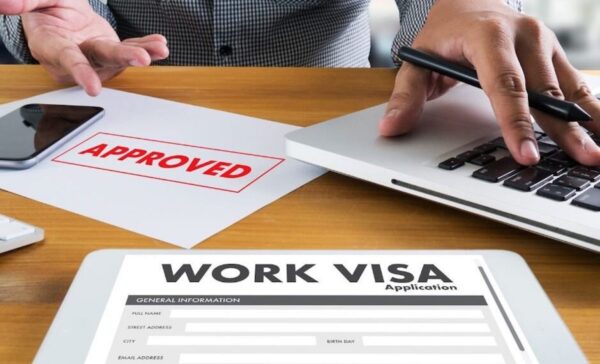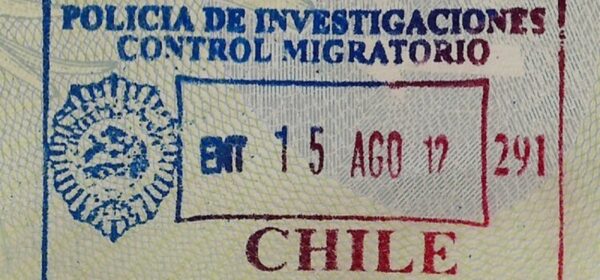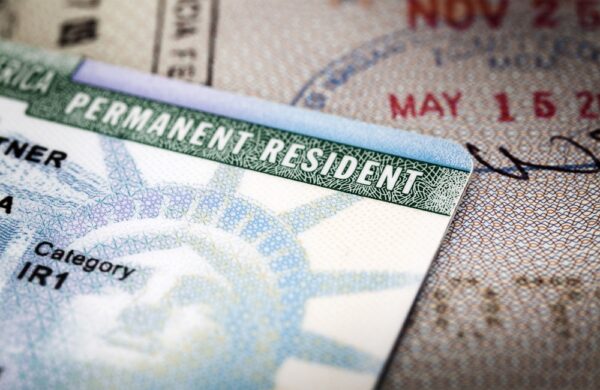Are you ready to take the big employment leap? With a Lithuania work visa, you can achieve your dream of building an international career. Lithuania is known for its natural beauty and prominent world heritage sites making it one of the most visited countries by tourists. Aside from tourism, Lithuania has appeared as a top destination for skilled foreigners and professionals worldwide. The international job market has been on the move and you can as well join the train. Whether you’re interested in temporary or long-term employment you’ll definitely get something to suit your goals. we’ll break down all you need to apply for a Lithuanian work visa.
Why You Should Work in Lithuania
Having a Lithuania work visa is your golden ticket to work in Lithuania legally as a skilled worker. Here are some of the benefits that can solidify your thoughts of working in Lithuania:
Career Opportunities
Over the years, Lithuania has experienced consistent economic growth, making it a popular place among international job seekers. The tech industry especially has a high demand for skilled professionals, which is open to both local and foreign job seekers who can get the job done. Other field like healthcare, finance, and engineering also have great opportunities for foreign nationals.
Employee Benefits
One thing you get to enjoy in Lithuania as a legal worker is lots of employer benefits and work bonuses. Although the salary might not be as high compared to popular European countries, you get to enjoy work benefits such as professional development and training, paid annual and sick leave, health insurance, a flexible working environment, and more.
Great Location
Lithuania is right at the center of Europe, which means you can easily travel to and explore other neighboring European countries like Estonia, Poland, and Latvia. This is a good one if you love to travel and explore new places.
Low Cost of Living
Being one of the countries in Europe with the lowest cost of living, you’re sure to enjoy your paycheck more. With reduced rates of feeding, housing, and taxes, you can have more opportunities to save and not live paycheck to paycheck.
Inclusion in Work Space
Inclusion is something you get to enjoy in Lithuania. You get to work in sectors and a friendly work environment without feeling left out. Lithuanian organizations now embrace diversity in their work sector. International companies in Lithuania have also helped to bridge that gap, making it easier for foreigners to feel included and appreciated in their workspace.
Great Place For Business Startups and Entrepreneurship
Business owners and entrepreneurs are not exempted from some of what Lithuania offers. Lithuania is a hub for startups, especially in fintech and IT. The government provides support and incentives for entrepreneurs, including access to funding and a favorable tax environment.

Types of Lithuania Work Visa
While a work visa is open to foreign nationals or non-EU citizens, citizens of European Union countries don’t need one to be employed in Lithuania. Let’s look at the major Lithuania work visa types.
National Work Visa (D)
The National Visa is a visa that allows foreign employees to stay in Lithuania for up to a year. It’s a great option for those coming to work for a Lithuanian employer on a contract. Having a national visa as a foreign worker can guarantee you the freedom to travel freely within the Schengen Zone for up to 90 days in 180 days. This long-stay visa is suitable for skilled professionals such as engineers, health professionals, IT specialists, and a lot more.
Temporary Residence Permit (TRP)
For those planning to work and stay in Lithuania for a while, a Temporary Residence Permit is necessary. This Lithuanian work permit is usually issued based on employment and must be renewed depending on the length of your work contract. To qualify, you’ll need a job contract and evidence of qualifications. Also, you should know that getting a residence permit is important if you want to stay or settle in Lithuania for a while. It’s also great for foreign nationals trying to get a permanent residence permit later on.
Visa Application Eligibility Criteria
Knowing if you’re eligible to work or apply for a work visa in Lithuania is important before you begin the application process. Here are the eligibility criteria for a visa application process:
- You must have secured a legitimate job offer from a Lithuanian employer or organization.
- You must be at least 18 years of age at the time of application.
- Your prospective employer might need to prove that they couldn’t find a suitable Lithuanian or EU candidate for the position.
Documents Required For a Lithuania Work Visa
The following are the visa requirements to get a work visa in Lithuania:
- The visa application form is available on the website of the Lithuania migration department.
- A job offer from an employer or organization in Lithuania.
- A cover letter stating your mission in Lithuanian.
- A valid passport with at least 6 months validity beyound your expected stay in Lithuania. Also, it must have at least two blank pages.
- A recent passport photograph.
- Proof of professional qualification and license, letter from previous employers depending on your profession.
- Your bank statement shows proof of funds, so you can be sure that you can sustain yourself during your stay in the country.
- Health insurance covers at least €30,000, which must be valid within the Schengen area.
- Police clearance certificate to confirm that you have a clean criminal record.
Application Process For a Lithuania Work Visa
Applying for a visa generally comes with its stress, but with step-by-step guidance, you will get a hang of it. Here’s a breakdown of the Lithuania work visa process:
Get a Lithuania Job Offer
Before applying for a work visa, you must have a job offer or an employment contract from a Lithuanian employer or organization. To do this conveniently, you can use job search platforms like LinkedIn or local Lithuanian job boards to connect with potential employers.
Gather Required Documents
Once you’ve secured a job in Lithuania, prepare and verify the required documents. Ensure proper documentation and document arrangement.
Submit Your Application
You can submit your application via the Lithuanian embassy or consulate in your home country. Some applications can be completed online. However, be prepared for in-person submissions.
Attend an Interview
Depending on your country of residence and your visa type, you may need to attend an interview. Prepare ahead and be ready to discuss your job role, your organization, and why you’re moving to Lithuania. Dress professionally and practice embassy interview questions for a work visa.
Wait for Approval and Get Your Visa
Once you provide all visa requirement processes, have duly followed, and your documents approved, your visa will be issued, which you can get from the Lithuanian consulate in your country of residence.
Visa Fees and Processing Time
The visa fee is a must and should be paid at the Lithuanian consulate or embassy in your home country. The fee is usually around €120, which is non-refundable. Usually, Lithuania has a very short processing time of 15 days when the application is correctly done. Within 15 days You will be holding your Lithuanian work visa ready to explore Lithuania. However, in cases of delay, it may be delayed for up to 45 days, depending on what the issue is. They also have an expedited processing option to fast-track the process, but it might cost you an additional fee.
Lithuania Work Visa and Permit Extension
If there’s a need to extend your work stay in Lithuania, or probably your boss still needs your service, there’s room for extension beyond the original validity of your work visa or residence permit. If you entered through the National D work visa, you won’t be able to renew your visa. However, you can transition to the Temporary Residence Permit if you want to continue your employment in Lithuania. On the other hand, if you’re currently on a temporary residence permit, you can always renew before expiration.
Just plan ahead and make a renewal a few months before the actual expiry date. Doing this will help you stay above the lengthy processing time and avoid any legal issues due to overstaying violations. Another thing about visa renewal or extension is that your employer must prove that they still need your services, so you must have a clear agreement with your employer before starting the process. However, in a case where your visa extension application is denied, you can seek legal advice to appeal, which is a long process on its own. If things still don’t work out, you will be given a grace period to leave the country, which you must not exceed.
Pre and Post-Application Tips
Here are some of the tips you should note if you want to work in Lithuania:
Double-Check Everything
When filling out your application form, ensure your details do not contradict each other in any way. Cross-check all your documents and ensure you’re submitting the required documents before your final submission. Doing this will save you from delays in issuance or even visa denial.
Keep in Touch With Your Employer
As long as your work visa is concerned, you and your employer are both involved. Your employer is responsible for sponsorship and providing additional documentation as well as making a petition for your work visa. Without your employer, you can really do little to nothing on your work visa process. Be regularly in touch with your employer and ensure they are aware of deadlines and their responsibilities.
Monitor Your Application Status
Once you’ve submitted your visa application, do well to track the status of your application. You can do that at the embassy or on the Lithuanian immigration website. Doing this will help you stay up to date with any new developments, such as requests for additional documents or information.
Consider Using an Experienced Visa Expert
If you feel the visa application process is too overwhelming and you need a support system, you should consider an experienced consultant. You can use a visa consultant or immigration attorney to make the process seamless. They can also help you identify and address any issues that might be of risk to your application.
Stay Informed About Changes in Visa Policy
Changes in immigration laws and policies are normal, but you can stay up to date by regularly checking the official website of the Lithuanian Migration Department. This will prevent you from violating immigration or labor laws.
Make Travel Arrangements
Once your visa has been approved and your process settled, one of the post-application tips is to make your travel arrangements on time. Book your flights and arrange temporary accommodation to avoid being stranded. It’s a good idea to have a backup plan for your first few weeks in Lithuania.
Do Your Registration Upon Arrival
Once you arrive in Lithuania, you must make your resident permit application to register your residence within seven days at the Lithuanian Migration Department. This is a very important step in getting your Temporary Residence Permit, which allows you to stay legally in Lithuania.
Settling Down
Once you’re ready to move out of your temporary accommodation, get help from locals or even your employer to get good housing options. Opening a bank account is also essential for receiving your salary, so you should visit a Lithuanian bank to do the necessary registration.
Conclusion
Applying for a Lithuanian work visa involves several steps, whether temporary or national. From securing a job offer to preparing documents and navigating embassy interviews, the process may seem complex, but with careful preparation, you can make it work. Lithuania’s vibrant job market and good living conditions make it worthwhile. If you’re ready to embark on your new adventure, start by planning today and get ready for an exciting career journey in Lithuania!
















